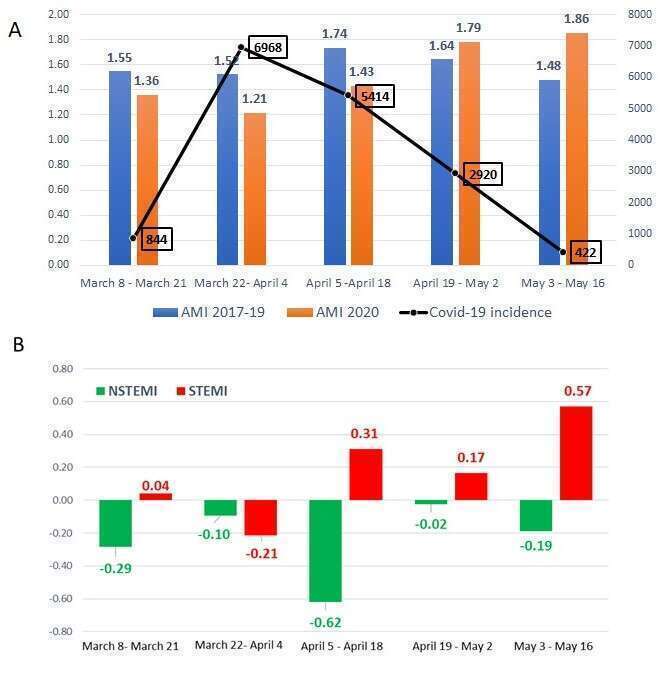
Post Covid-19 acute myocardial infarction rebound
2Sackler School of Medicine, Tel Aviv University, Israel
Objective
As the first wave of Covid-19 came to a relative trough in parts of Europe and some countries in the US we observed a resurgence in acute myocardial infarction (AMI) admissions in Israel. The aim of our study was to describe the trends in ACS hospitalizations in intensive cardiac care unit (ICCU) over the course of the first wave coronavirus outbreak.
Methods
We collected data from patients hospitalized in the Intensive coronary care unit (ICCU) of a single tertiary center in Israel during a 10-weeks period starting from March 8th through May 16th, 2020 who presented with AMI. We compare the mean daily ACS hospitalization rates during said period and the corresponding periods during 2017-2019.
Results
Our study comprised of 440 consecutive patients, of them 107 (24%) were hospitalized during the Covid-19 outbreak. Median age was 66 years (interquartile range 56-75), 341 (78%) were men and 241 (55%) were diagnosed with ST-elevation MI (STEMI). We observed a 12%, 20% and 18% reduction in the AMI daily admission rates during 3 biweekly periods at the early phase of coronavirus outbreak (March 8th - April 18th). On the contrary, we observe a 9% and 26% increase in AMI admissions during 2 biweekly periods at the late phase (April 19th - May 16th,2020). The rebound increase in AMI admissions during the late phase was driven by the increase in STEMI rates (16% and 100% elevation vs. 3% and 21% reduction in NSTEMI mean daily admission rates). This trend in AMI hospitalization inversely correlates with the rise and fall in the incidence of newly diagnosed coronavirus cases (Figure 1).
Conclusion
We describe an increase in AMI hospitalization correlating with fading of Covid-19 pandemic, that should be carefully addressed with respect to future subsequent waves if come to pass.
Figure1.Rebound effect of AMI admissions

Powered by Eventact EMS